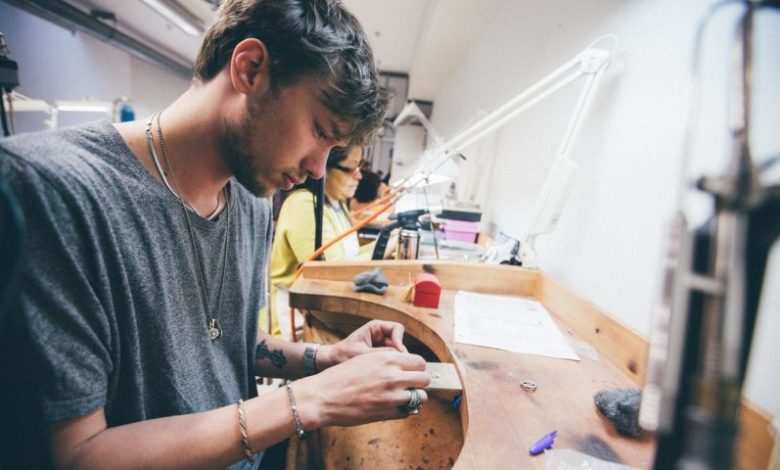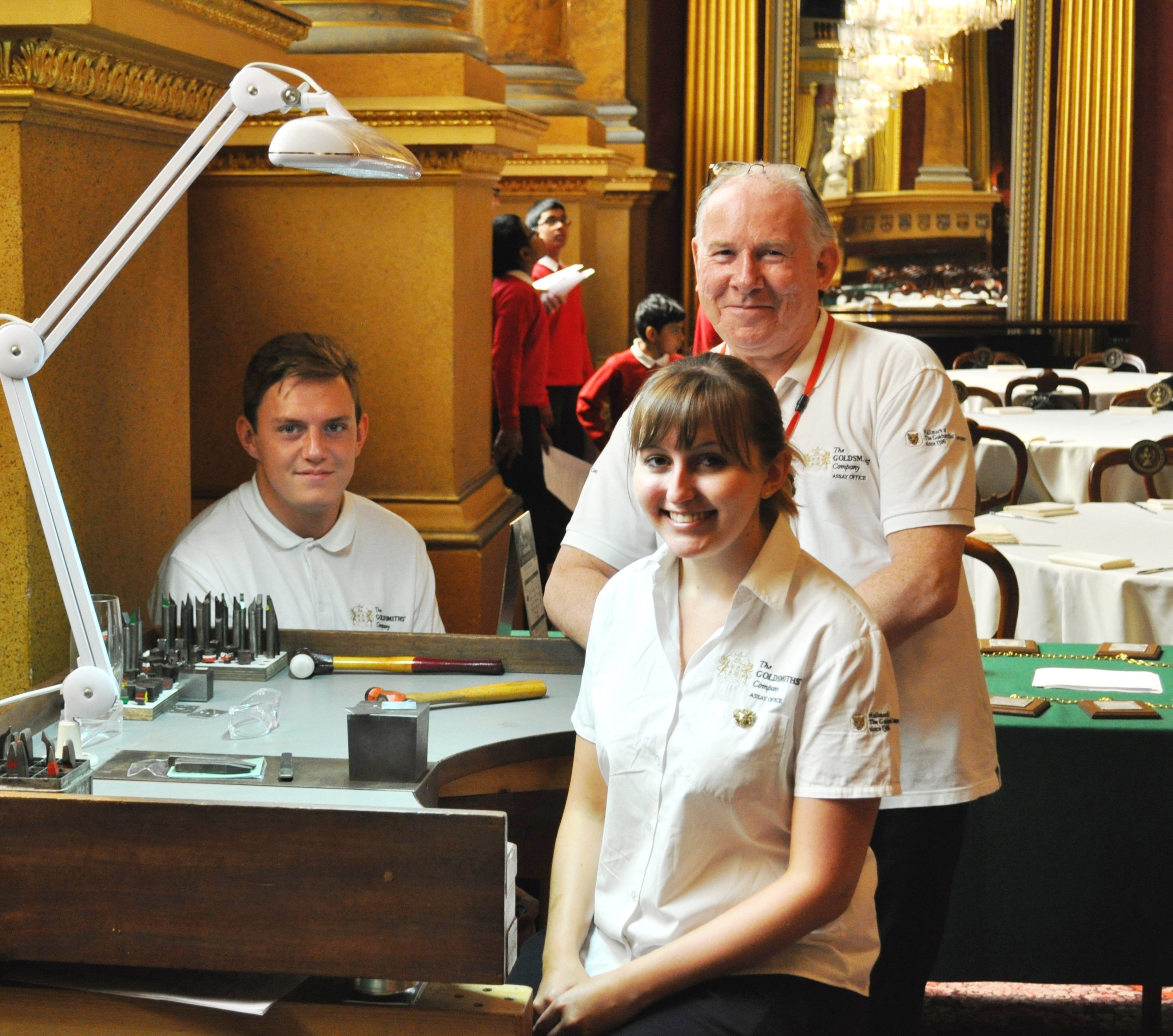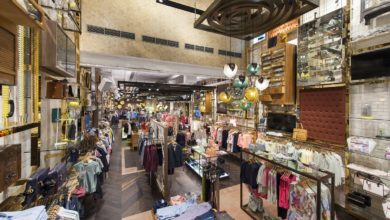FOCUS ON: Education and training in the jewellery industry

Training methods in the jewellery industry haven’t changed much over the years, although new establishments have provided a structured approach and increased access to funding. As technical skills and mass manufacturing continue gradually to move abroad, what’s next for the industry?
[divider style=”solid” top=”20″ bottom=”20″]
Education and training may seem like an obviously important part of any industry, but in reality it is often overlooked. Tuition in some form has always been a part of the character of the jewellery industry, but with no governing body and few universally recognised qualifications to acquire, it can lack a structured and ‘mainstream’ approach. With the recent evolution of new organisations offering disciplined courses and certificates, and existing bodies increasing the courses they offer, training and education within the industry have come on leaps and bounds.
The key for training within the industry now is to encourage young people into the industry, particularly those with a passion for the sector, and to bring back jobs to the UK which have begun to move to less expensive, but also lower quality, markets abroad.
APPRENTICESHIPS
The current government push on apprenticeships across all UK industries has in many ways provided vindication for the jewellery world – an age-old method of education which jewellers and craftspeople have used to bring the young on board for millennia. But this rebooting of the concept by government means it is becoming more frequently adopted within the jewellery industry in the quarters where it had fallen from popularity.

Dave Merry, head of training and education at the Goldsmiths’ Company Assay Office, claims the first mention of apprentices in the company archive minutes appears in the year 1300.
Meanwhile, Sofie Boons, head of teaching and learning at Holts Academy, said there has “definitely been a push” towards apprenticeships, adding that it’s “very good” to learn on the job. She says: “We notice that in the jewellery industry in particular, if you’re talking about technical skills, then apprenticeships are age old – this was always the way the trade taught the students within the industry.”
The advantage of apprenticeships is not just learning on the job, but also the one-to-one training that apprentices receive from their mentor. Merry comments: “I wholeheartedly still believe in [the] single-person mentoring of young people, teaching not only the craft but [also] life skills as well. I’m proud to see that this continues today. The young people over the last decade have been more receptive to learning the traditional skills as well as up to date technology – they want the best of [both] past and future.”
ORGANISED TRAINING
While methods may not have changed, companies such as Holts, the Goldsmiths’ Company Assay office and the Birmingham School of Jewellery are continually providing increased access to better and higher quality levels of organised training, whether it be an apprenticeship or a university degree. Those who undertake education from such organisations will come out of full-time education with a certificate that is not only recognised within the jewellery industry, but one that can be transferred to various career paths.

The hope is that organised training will help to combat the impact of low-wage competition in the Far East, and the effect it is having on jewellery manufacturing and technically skilled jobs in the UK. Boons claims it is the aim of Holts to bring these jobs back to the UK: “We see the value in making and designing. We see the value in artisanal skills, things that, as a British industry, we are very good at and that’s something we certainly want to maintain.”
Despite this, Walter believes there is always going to be a natural migration for mass manufacturing to areas where costs are lower, which he says is a “market force that can’t be reversed easily”. However he says the the training and educational support, of both traditional and modern skills, is key to ensuring the UK jewellery industry retains handmaking and high-quality bespoke skills, which he says still have a high demand within the industry.
While the jewellery education sector is still largely using similar teaching methods to previous decades, according to Boons there is also an increasing push towards designs skills which are often taught in classroom-based environments. This can be particularly seen in the training of modern skills such as computer-aided design and computer-aided manufacturing (CAD/CAM), which can be more theory-based than traditional practices.
THE RETAIL BENEFIT
Not only is education vital for the future of the industry and encouraging young people into it, but it can also significantly improve the services a retail jeweller is able to offer his clients While many retail jewellers offer extra services such as the repair or modification of jewellery, there are many which do not. Whether it is employing someone who has an education and has learned the technical skills to take on these tasks, employing an apprentice to learn on the job, or actively learning the skills yourself, offering these extra services can add new dimension to a retail business.

Not only will offering these services help bring in additional revenue and encourage upsell opportunities for the retailer, the improved knowledge on jewellery and the products on sale will help develop closer customer relationships and trust in the company. Scott Walter, CEO at the Edinburgh Assay Office, says: “The benefit to the retailers is that they are available to provide on-site services that otherwise may have to be subcontracted. I think for an independent retailer to have those skills on site gives them a competitive advantage and, having come from the jewellery industry, when I think of a jewellery retailer I always imagine that they would have a skilled professional on site that can modify and repair jewellery. Those are the things that make a more complete retailer.”
Not only can retailers benefit from technical skills, training and education organisations now also offer apprenticeships and courses in retail and business administration. This can be a great opportunity for jewellery retailers to hire jewellery-specific salespeople or store managers who have trained in the retail jewellery world. Berry adds: “There are huge benefits, the more knowledge about the product the better to guide the consumer. Attitude is important as well, so the two go hand-in-hand in my opinion.”
Despite education and training methods remaining largely similar with long-established practices still in use, the industry has come a long way in recent years in terms of establishing an organised approach to training both young and mature students who are passionate about finding a career within the jewellery sector.
The most important thing is that the industry keeps teaching those with a passion for the sector, and as structured education from the both training and education organisations continues to progress, the number of skilled workers – both in terms of technical and retail ability – joining the industry will only increase. Boon adds: “There are a lot of people with really great skills in the industry, but we need to keep sharing them because otherwise we will lose them.”













